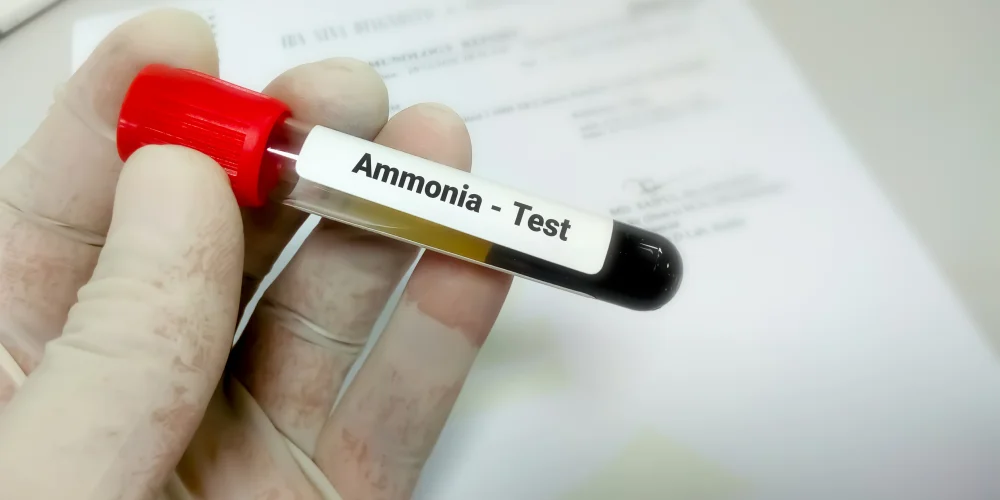Ammonia Test
Assessment of Liver Function
Ammonia Test is a vital test that measures the amount of NH3 present in bloodstream. NH3 is a byproduct of the breakdown of proteins, is transformed in the liver which is then converted to Urea, a chemical that is not as toxic and is able to be eliminated safely via urine. This process of conversion is essential in maintaining the healthy levels of ammonia throughout the body.
NH3 levels that are elevated in the blood are usually a sign of the presence of liver dysfunction or other issues that impact the metabolism of NH3. When liver disorders are present, such as liver cirrhosis, hepatitis or liver insufficiency, the ability of the liver to convert urea from NH3 is impaired, resulting in the accumulation of ammonia within the blood. The buildup of ammonia can cause negative consequences, especially for brain function. This can result in a disorder called hepatic encephalopathy. Some of the symptoms associated with hepatic-encephalopathy include confusion, disorientation, or at times, even an ensuing coma.

When is the Ammonia Test Prescribed?
Ammonia Test is prescribed in various clinical situations:
- Evaluation of Liver Function : Determine the liver’s function, particularly in instances of liver disease suspected or liver cirrhosis.
- Encephalopathy Diagnose : To detect and track hepatic encephalopathy an illness in which high ammonia levels interfere with brain function.
Monitor Treatment for Patients who are receiving treatment for liver diseases or receiving medication that can affect levels of NH3. Assessment Of Urea Cycle Diseases For assessing conditions that impact the body’s capacity to process ammonia such as urinary cycle problems.
Preparation for the Ammonia Test
There is no special preparation required to take this test. Patients are able to eat and drink normal prior to the examination. But, it is essential to inform your physician regarding any medication, supplements or illnesses that have recently occurred, because they can affect the levels of ammonia.
Parameters Considered During Ammonia Test
The Ammonia Test determines the amount of NH3 in blood. This is typically reported in deciliters of micrograms (ug/dL) as well as micromoles per one liter (umol/L). Normal levels of ammonia in adulthood are usually lower than 50 Ug/dL (35 Umol/L). The presence of elevated levels could be a sign of kidney disease, liver dysfunction, or another metabolic conditions that affect ammonia metabolism.
Time Required for Ammonia Test Report
Ammonia Test is a relatively fast process. When a blood sample is taken the results will be available in a matter of hours or the next day. The speed of turnaround allows health professionals to quickly examine ammonia levels and begin the appropriate treatment if needed.
Ammonia Test Price
In Chirayu Super Speciality Hospital, the Ammonia Test price is Rs1000. This will allow access to diagnostic tests that are essential for metabolic and liver conditions. The cost-effective solution allows for earlier detection and the management of ailments that are related to the metabolism of ammonia.
Book an Appointment for Ammonia Test
Scheduling an appointment for your Ammonia Test at Chirayu Super Speciality Hospital in Bhayandar is simple and quick. You can easily book the test via our online portal or by contacting our team. We are committed to providing prompt and efficient services to meet your healthcare needs.
What Our Patients Say
Hear from our valued patients about their experiences at Chirayu Super Speciality Hospital and how our care has made a positive impact on their health and well-being.


Efficient and reliable Ammonia Test services at Chirayu Hospital.


The Ammonia Test report was detailed, helping me manage my health better.


Grateful for the thorough assessment with Chirayu Ammonia Test.


Professional service and rapid reporting with Chirayu Ammonia Test.


Accurate results from the Ammonia Test at Chirayu Hospital guided my treatment plan.


Chirayu Hospital Ammonia Test provided crucial insights into my liver function.
Frequently Asked Questions
Here, we provide answers to some of the most commonly asked questions to help you better understand our services, policies, and facilities. If you have any additional questions, please do not hesitate to contact us.
Symptoms may include confusion, fatigue, weakness, and in severe cases, coma.
Treatment involves reducing ammonia levels through medications and dietary changes.
Yes, certain medications, especially those metabolised by the liver, can influence ammonia levels.
Liver disease, kidney dysfunction, and urea cycle disorders can impact ammonia metabolism.
A blood sample is drawn from a vein in the arm and sent to a laboratory for analysis.